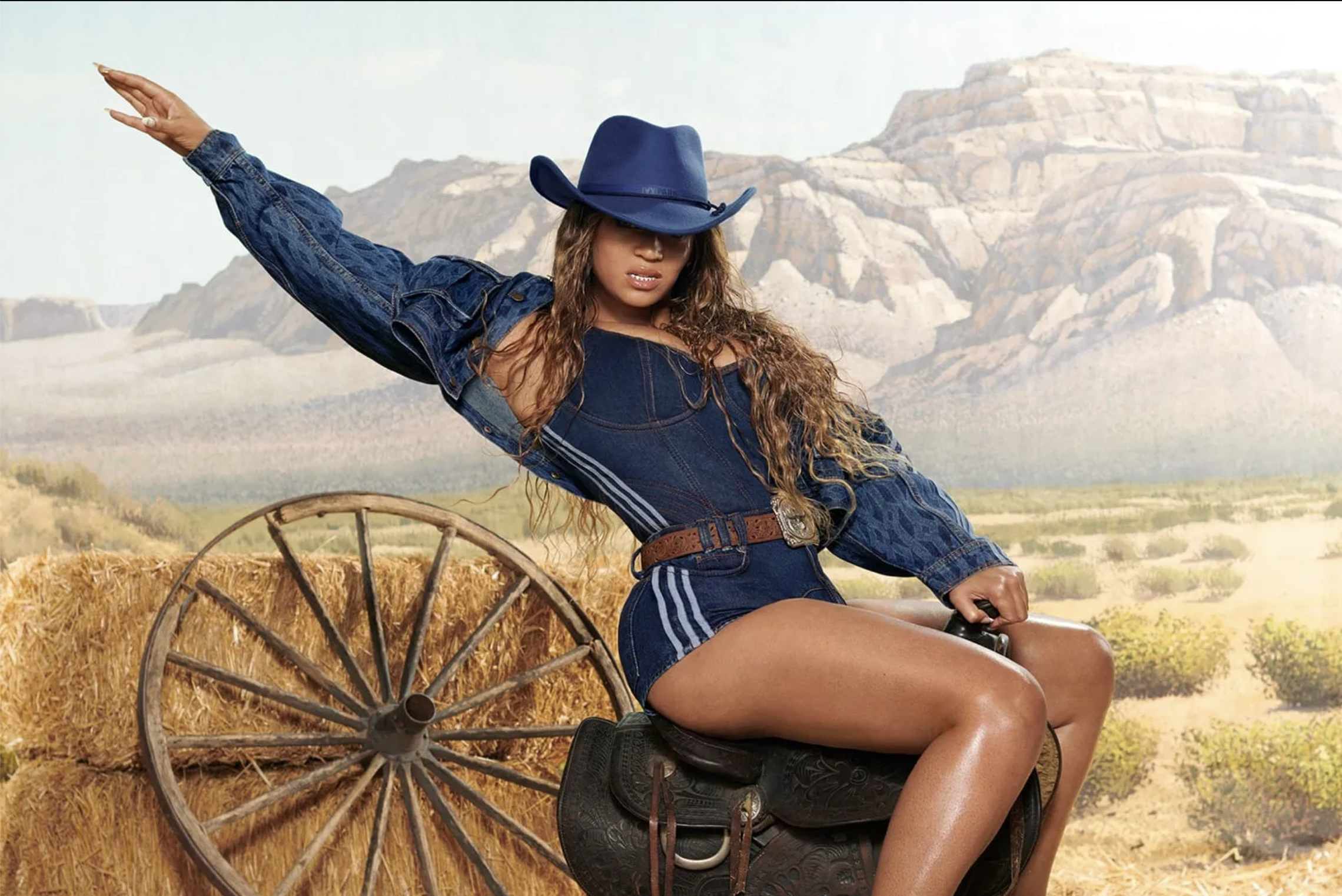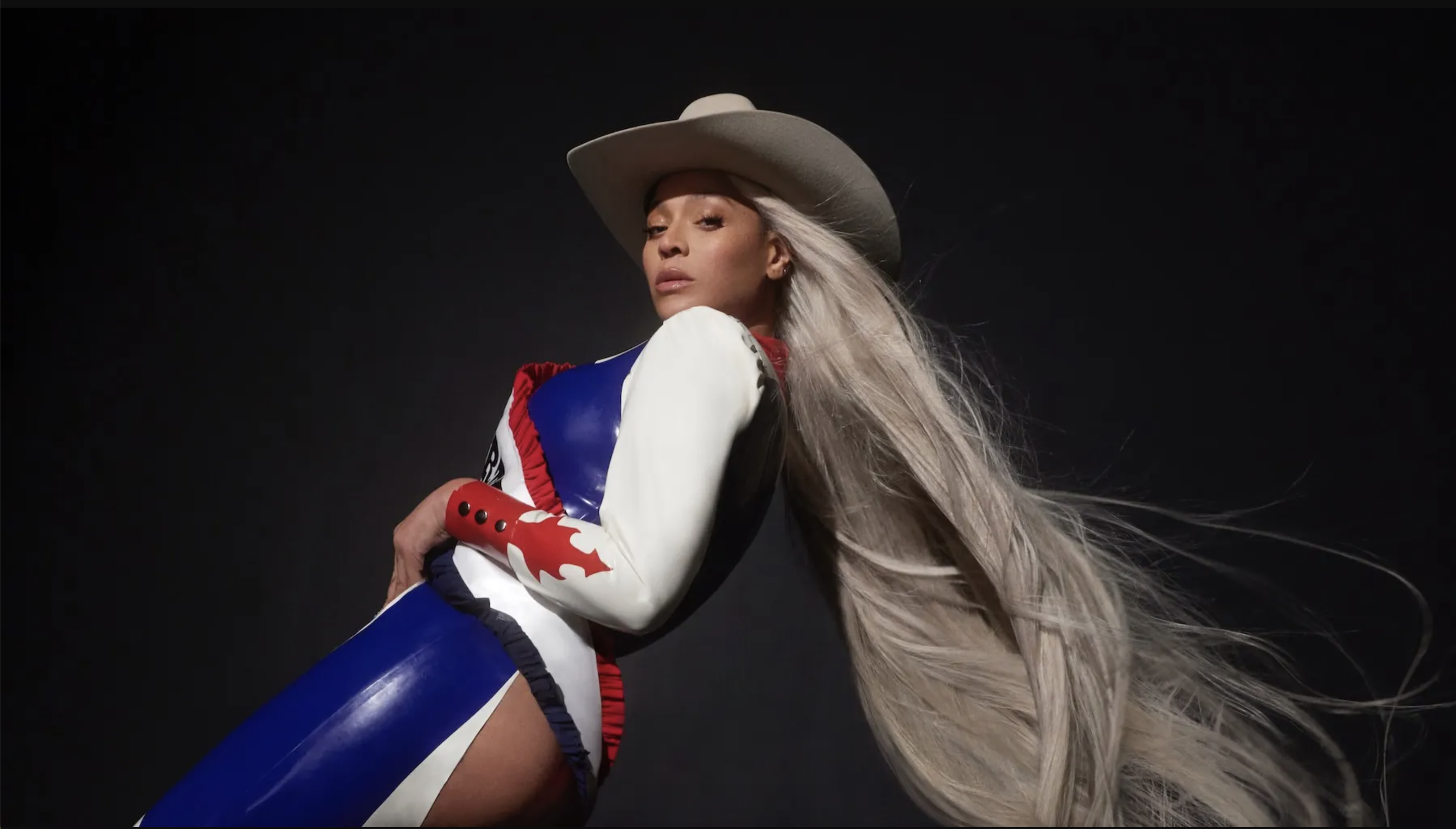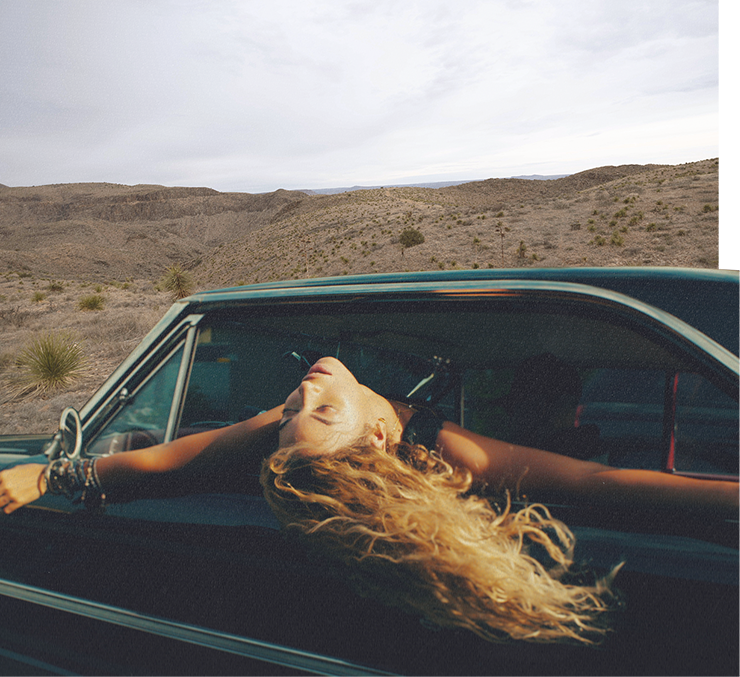Part 1 Uncovering the Roots: The Real Origin of Country Music
Beyoncé has broken me yet again.
On Beyoncé’s 2020 Afrobeats album “The Gift,” track 17 features the song “Black Parade,” where she sings:
I'm goin' back to the South
I'm goin' back, back, back, back
Where my roots ain't watered down
Growin', growin' like a Baobab tree
Beyoncé is returning to her H-Town roots for her eighth studio album, Act II: Cowboy Carter (yeehaw).
Country music, often associated with the rural landscape, beer drinking, truck driving, and (unfortunately) the MAGA-crazed heart of white America, actually has a rich and diverse history that extends far beyond its mainstream narrative. It's a genre deeply intertwined with the history and contributions of Black people and African cultures, yet this influence is often overlooked or overshadowed on today’s white-washed top country charts. In part one of my Beyoncé blog series, I will delve into the origins of country music, explore the African roots of the genre, highlight the contributions of Black artists, discuss the lasting impact of African cultural influences on this quintessentially American art form - and speculate on Cowboy Carter.
Beyoncé’s H-Town HBCU Inspiration
When Beyoncé dropped her single, MY HOUSE, two months ago, I was immediately transported back to Beychella and Beyoncé’s documentary film HΘMΣCΘMING. The show opens with a female drum major in full marching band uniform beating her drums with a ferocious expression. After blowing her whistle, she walks to the side to unveil a line of female dancers dressed in King Tut pantsuits, whirling around to expose the one and only Beyoncé.
Her performance is a love letter to HBCUs with a complete marching band and majorette dancers, as well as elements of Black Greek life such as a step show and pledge walking. The love and respect for HBCUs are clear when looking at the visuals for Beychella. Beyoncé said she was captivated by watching the Battle of the Bands every year when she was growing up and wanted to bring that energy to her first performance after giving birth to her twins.
Atlanta University (now Clark Atlanta University) was founded on September 19, 1865, as the first HBCU in the Southern United States. The history of HBCUs is linked intimately to the history of the South, reconstruction, and segregation. For a century after American slavery was abolished in 1865, almost all colleges and universities in the Southern United States prohibited all African Americans from attending, as dictated by Jim Crow laws in the South, whereas institutions in other parts of the country frequently used quotas to limit admissions of Black students. HBCUs were founded to give additional opportunities for African Americans, and they are significantly responsible for the formation and expansion of the African-American middle class. Today, most HBCUs still exist below the Mason-Dixon line and enjoy a strong culture and legacy among Black families in the South that I believe Beyoncé will continue to explore in her future albums.
Let’s Talk Singles - 16 Carriages
16 Carriges is one of two surprise singles from Beyoncé’s upcoming album, Cowboy Carter. This song is a slow-burn epic country ballad with melodic vocals and organ-loud percussion. Beyoncé recalls her teenage years and the pressure her dream of performing placed on her family and herself. She mentions her loss of innocence, uprooting her life, her dreams lost, and her desire for a lasting legacy as her fears fade away into the cool summer night.
Taking the structure of a classic country anthem, the song encompasses the themes of loss, faith, family, resilience, and hardship. Beyoncé said in her 2021 Harpers Bazaar interview: “My teenage years were about the grind. I grew up hearing this particular scripture from James 2:17, ‘Faith without work is dead.’ Vision and intention weren’t enough; I had to put in the work.”
This feeling is expanded on songs like “Pretty Hurts” and “Daddy Lessons”(rejected for submission into the Country Music category by the Grammys) giving us a glimpse into her inner world we rarely see. So many 16-year-old girls in that 90s and 2000s era dreamed of being international pop stars - but in this song, Beyoncé tells us what the reality of fame looks like. She laments sleepless nights, aching bones, missing her family, and missing out on what it meant to be a young girl. As she says in her Harpers Bazaar interview, the first decade of her life was dedicated to dreaming and building worlds in her imagination. In her second decade of life, she “felt the pressure from the outside and their eyes watching for me to trip or fail.” Beyoncé said, “I couldn’t let my family down after all the sacrifices they made for me and the girls. That meant I was the most careful, professional teenager, and I grew up fast.” By achieving one dream, she had to give up so many others.
Beyoncé Ivy Park X Adidas Rodeo Collection
On her 2021 IVY PARK collection:
“This collection is a mixture of my childhood growing up in Texas and a bit of American history. I grew up going to the Houston rodeo every year. It was this amazing, diverse, and multicultural experience where there was something for every member of the family, including great performances, Houston-style fried Snickers, and fried turkey legs. One of my inspirations came from the overlooked history of the American Black cowboy. Many of them were originally called cowhands, who experienced great discrimination and were often forced to work with the worst, most temperamental horses. They took their talents and formed the Soul Circuit. Through time, these Black rodeos showcased incredible performers and helped us reclaim our place in Western history and culture. We were inspired by the culture and swag of the Houston rodeo. We combined classic elements with the athleticwear of IVY PARK x Adidas, adding our own spin, monogrammed denim, chaps, and cowhide.”
From Vogue Business - Inside Fashion’s Western Revival:
Over the first three months of 2024 in the US, searches are up for terms including “cowgirl outfit” (up 35%), “cowboy outfit” (up 30%), “Western outfit” (up 10%), and “cowboy boots” (up 19%). In the UK, “cowgirl-style outfits” are up by four times, while “Western outfits” are up 80%. On Instagram, 49% of 10,000 Instagram users surveyed by analytical account @Databutmakeitfashion, said they were carrying cowboy boots into 2024. The trend also continues to soar among Depop users, of which approximately 90% are Gen Z. Searches for Western hats are up 82%, while Western jackets and boots are each up 86%. The influence Beyoncé has on art, culture, and fashion is undeniable.
The African Roots of Country Music:
The heart of country music is the banjo, an instrument with deep African roots. Originating in West Africa, the banjo was brought to America by Africans who were captured and enslaved by white human traffickers, who adapted it and incorporated it into their musical traditions. By the 19th century, the banjo had become a staple instrument in American folk music, particularly in the Appalachian region, where it played a central role in shaping the sound of early country music. Its distinctive twang and rhythmic patterns reflected the African musical heritage of its players, serving as a testament to the enduring influence of African cultures on the genre.
To understand the influence of African cultures and Black people on country music, it's essential to first grasp the historical context of the genre. The origins of country music are in Bluegrass and blues. Reports of blues music in southern Texas and the Deep South were written at the dawn of the 20th century. Blues can be traced back to the musical traditions of Africa, with the so-called “blue note” and call-and-response format that puts lyrics and notes in conversation with rhythm. The Blue note is a “worried note” in music; usually, thirds, fifths, or sevenths flattened in pitch, are an essential part of the sound. Blues music incorporated spirituals, work songs, field hollers, shouts, chants, and rhymed simple narrative ballads from African-American culture.
Bluegrass is a genre that relies on the acoustic sound of string instruments like the banjo, fiddle, mandolin, and upright bass. Emerging in the early 20th century in the southern United States, country music evolved from a blend of European folk traditions, Appalachian melodies, and musical elements brought by African people who were forcibly kidnapped and trafficked to North America for forced labor.
The history of the banjo is rooted in the African continent. According to an entry in Smithsonian Music, “from the earliest references in the 17th century, and through the 1830s, the banjo was exclusively known as an African-American tradition with a West African heritage.” These early instruments were crafted by carving a gourd in half, hollowing it out, and stretching an animal skin across it. The strings were traditionally made of gut or vegetable fibers and were plucked with the fingers. Black people continued to make and play similar instruments with the resources available to them, which evolved into the modern-day banjo we hear today in country classics.
Work calls and chants became lyrics to these sounds, telling stories of love and loss, the harsh yet beautiful landscape, and cries of protest against the unjust. In her video essay “Is ‘Black Music’ a Racist Term?” Dara Starr Tucker explains that this Black American music “is an expression of the joy, the pain, the hardship, and the triumph of being Black in the United States.”
This melting pot of influences laid the foundation for what would become one of America's most beloved musical styles: Country Music.
Recorded blues and country music can be found as far back as the 1920s, when the record industry created the marketing categories "race music" and "hillbilly music" to sell music by Black people for Black people and by whites for whites, respectively. At the time, there was no clear musical division between "blues" and "country," except for the ethnicity of the performer, and even that was sometimes documented incorrectly by record companies.
Black Artists in Country Music:
Despite facing significant barriers and discrimination, Black artists have made invaluable contributions to country music throughout its history. One of the most notable pioneers was Linda Martell, featured on Cowboy Carter. Linda Martell was the first Black female country music performer to achieve commercial success and to perform at the Grand Ole Opry. As one of the earliest African-American country musicians, Martell influenced the careers of succeeding Nashville artists of color. Despite these challenges, Black artists continue to leave their mark on country music, challenging stereotypes and enriching the genre with their unique perspectives and talents.
Linda Martell
The transition from country blues to urban blues in the 1920s was spurred by economic upheavals and the resulting movement of rural African Americans to urban centers, known as the Great Migration. Following World War II, another significant migration, dubbed the Second Great Migration, occurred alongside an increase in the real income of urban African Americans. This influx of people created a fresh market for the music industry, leading to the rebranding of "race records" to "rhythm and blues." Billboard magazine's Rhythm & Blues chart reflected these changes. Commercial strategies emphasized urban blues elements such as electric instruments, amplification, and the ubiquitous blues shuffle beat, shaping the broader genre of rhythm and blues (R&B), which incorporated blues alongside jazz and gospel music.
African Cultural Influences in Country Music:
Beyond individual contributions, African cultural influences permeate the very fabric of country music. From syncopated rhythms to call-and-response patterns, elements borrowed from African traditions are woven throughout the genre's musical tapestry. Similarly, the storytelling techniques and lyric themes found in country music can be traced back to African oral traditions, which emphasized narrative storytelling, communal expression, and themes of resilience and survival. These shared cultural roots serve as a powerful reminder of the interconnectedness of musical traditions and the enduring legacy of African cultures in American music.
She’s Not New to This; She’s True to This
In her New York Times article from February 11 and TikTok videos on the topic, “The Queen Goes Country,” Tressie McMillan Cottom says that Beyoncé has always called back to her Houston roots, from situating her visuals in Houston iconography to her rich storytelling lyrics and soulful voice. McMillian Cottom describes the chokehold the “Nashville Machine” has on country music and country artists in 2024 - and announces her excitement that a real Texas native like Beyoncé could challenge “the lock on what is and isn’t considered country.”
In recent years, Beyoncé has bridged the gap between genres and redefined the boundaries of what it means to be a country artist. Her 2016 album, "Lemonade," featured elements of country music, blending it seamlessly with R&B, hip-hop, and pop. Tracks like "Daddy Lessons" showcased Beyoncé's Southern roots and her ability to authentically channel the sounds and stories of country music. In addition to her own music, Beyoncé has collaborated with country artists like The Chicks, further blurring the lines between genres and bringing new audiences to country music. She performed “Daddy Lessons” live with The Chicks at the Country Music Awards in 2016, drawing ire and disapproval from the audience. We saw similar backlash when Lil Nas X, originally from Austell, Georgia (population 7,000) - released “Old Town Road” in 2019.
If Taylor Swift’s parents can buy her ticket to Nashville, perm her hair real big, coach her into a country twang, and make her the biggest little “small town” star America has ever seen (only for her to drop the country act and go pop a few years later) - may I ask why a Black woman who was born and raised in Houston can’t make a country album?
As Beyoncé said in her 2016 single Formation:
“My daddy Alabama, momma Louisiana
You mix that negro with that Creole, make a Texas bama
I like my baby heir with baby hair and afros
I like my negro nose with Jackson Five nostrils
Earned all this money, but they never take the country out me,
I got hot sauce in my bag, swag”
But this isn’t meant to pit Taylor Swift and Beyoncé against one another; I don’t doubt that Taylor did (or does) love country music. I’m a sucker for her hits like “Teardrops on My Guitar” and “Our Song.” I simply want to ask - why Taylor and other white artists (like Elle King, daughter of Rob Schnider) are allowed to fake an accent and origin story, sing about a beat-up truck you never owned, and make it big at the Grand Ol Opry with little to no hate?
Beyoncé’s Contemporary Impact and Recognition
While progress has been made in recognizing the contributions of Black people and African cultures to country music, there is still much work to be done. Efforts to honor Black pioneers and acknowledge the genre's diverse roots are essential steps toward greater inclusivity and representation in the industry. As emerging Black artists continue to make their mark on country music, there is hope for a more inclusive and equitable future where all voices are celebrated and heard.
Conclusion
Country music is a testament to the rich tapestry of American culture, shaped by the contributions of people from all walks of life. By acknowledging the influence of Black people and African cultures on the genre, we gain a deeper appreciation for its roots and a greater understanding of its enduring appeal. As we continue to explore the diverse heritage of country music, let us celebrate the contributions of Black artists, honor the legacy of African cultures, and embrace the richness of our shared musical traditions. Beyoncé's foray into country music serves as a reminder of the genre's versatility and its ability to evolve and adapt to new influences, ensuring its relevance for generations to come.
“My wish for the future is to continue to do everything everyone thinks I can’t do.”
-Beyoncé Giselle Knowles Carter for Harpers Bazaar,
The Once and Future Beyoncé
My sources:
https://www.nytimes.com/2024/02/11/arts/music/beyonce-super-bowl-act-ii-country-album.html
https://www.youtube.com/watch?v=3mc6qp3rTOU
https://www.harpersbazaar.com/culture/features/a37039502/beyonce-evolution-interview-2021/
https://www.nytimes.com/live/2024/02/06/opinion/thepoint/beyonce-new-music-country?smid=url-share
https://en.wikipedia.org/wiki/The_Horse_in_Motion
https://www.smithsonianmag.com/history/lesser-known-history-african-american-cowboys-180962144/
https://www.youtube.com/watch?v=MAKLOy8Ktxc
https://genius.com/Beyonce-daddy-lessons-lyrics
https://www.youtube.com/watch?v=3mc6qp3rTOU&t=182s
https://www.youtube.com/watch?v=ltswXrGK4DQ
https://www.youtube.com/watch?v=6VIRtikKEnw
https://www.youtube.com/watch?v=wrRfOzhM2AE
https://www.youtube.com/watch?v=RiP8Tfa8bB8
https://www.vogue.co.uk/fashion/article/beyonce-vogue-cover-new-music
https://www.vogue.co.uk/news/article/beyonce-british-vogue-december-2020















